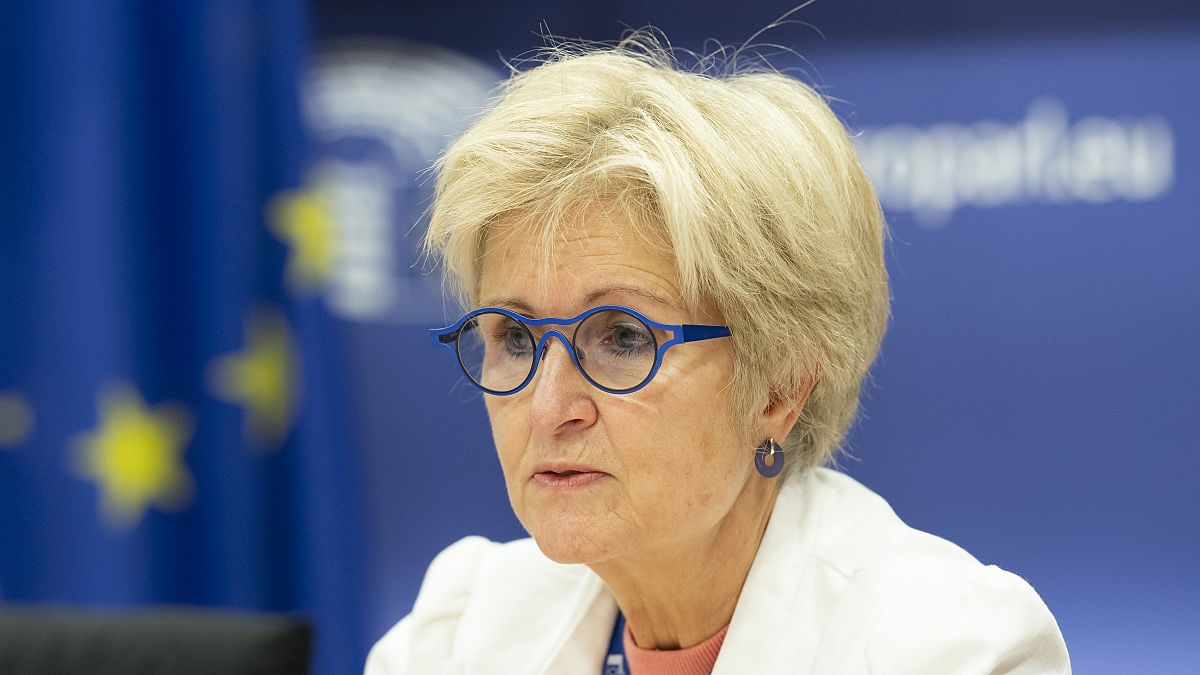The gender employment gap costs the EU €370 billion a year. “If the EU truly wants to become more competitive, gender equality should play a crucial role,” the director of the European Institute for Gender Equality told Euronews.
The European labour market has seen little improvement in women’s participation and segregation over the past decade, leaving an untapped source of potential and economic gain for the bloc, the director of the European Institute for Gender Equality (EIGE), Carlien Scheele, told Euronews.
“If you look at the new Commission President’s goal for the European Union to become competitive with other regions of the world, I think the combination of work and private life is extremely important (to look at) because it shows that there’s a hidden potential,” Scheele argued.
The gender employment gap in the EU is as high as 10.8%, costing the bloc €370 billion a year, according to the latest Commission estimates.
To date, women across the EU work fewer hours than men, still carry the bulk of unpaid care and domestic work and are over-represented in healthcare, education and social sectors. Meanwhile, men are more prevalent in higher-paying sectors such as technology, engineering and finance.
“We really have to start from school and really break the stereotypes that women must only be carers or educators or teachers or whatever, and men can be engineers or statisticians,” Davide Barbieri, statistics officer at EIGE, said.
Despite the increases seen in recent years in women’s participation in the labour market, still nearly one in three women outside the labour force said they cannot work due to care responsibilities – in comparison, the rate is one in ten for men in the EU.
The gap is wider when looking at couples with children. Only 66% of women within a couple with children are in full-time employment, compared to 92% of men.
The consequences of leaving women outside the labour market are not only economic, says the EIGE’s recently published Gender Equality Index 2024, as paid work and economic independence reduce the risk of physical, sexual and psychological violence.
“If you are fully dependent on your partner because you have no income or not enough income when you step out of the relationship, you can’t cope,” Scheele stated.
To avoid such scenarios, the EIGE director stressed the need for member states to ensure that men and women across the EU have all the mechanisms they need to reconcile work and private life.
Gender binding quotas show results
The slow progress in women’s participation in the labour market is reflected in their under-representation in leading positions in industry, business, science and sport.
Recognising the barriers women face in accessing leadership and decision-making roles, specific policy measures such as national quotas have been implemented in some member states and are proving to be effective.
The 2024 Index shows that in the first half of the year, every country with a binding quota for the presence of women on company boards – Austria, Belgium, France, Germany, Greece, Italy, the Netherlands and Portugal – not only met the target, but exceeded it.
In 2012, the European Commission unveiled a bloc-wide strategy to improve the gender balance in the boardrooms of the EU’s largest listed companies. A decade later, the proportion of women on the boards of the largest listed companies has reached a record high of 33%.
The Index also shows slow progress towards gender equality in other areas of daily life, such as money – where the gender pay gap is 13% – health and knowledge.
Half of the EU scored above 70 out of 100, with only Sweden above 80.
For Scheele, at this rate, the EU’s vision of a “union of equality” is far from being a reality – and the gains seen in gender equality are fragile at a moment of great challenges and a global rise in anti-gender narratives.
“If the EU truly wants to become more competitive, gender equality should play a crucial role in everything we see in Mario Draghi’s report,” said the EIGE director.
Read the full article here


